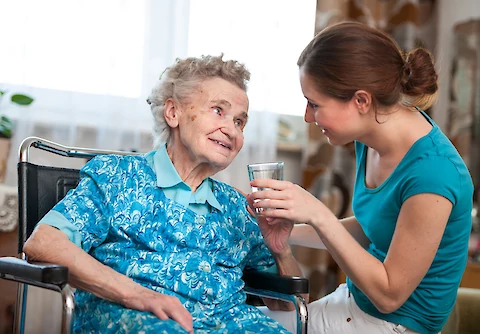
Looking after a loved one with Alzheimer's can be a challenging and emotional journey. As the primary care provider, you want to understand this progressive disease. Caregivers unfamiliar with Alzheimer's may not know how the condition may affect their senior family member's needs and behavior over time. If you’ve recently become the main care provider for a loved one with the condition, this guide will help you extend the best possible care for your loved one.
Early-stage Alzheimer's
In the early stages of Alzheimer's, your loved one may still be able to function independently. However, they may start to experience some difficulties. Common symptoms include memory loss, trouble planning or solving problems, and difficulty completing familiar tasks.
You want to establish a consistent daily routine during this stage. This helps your loved one feel secure and supported. Encourage independence by allowing them to continue doing tasks they can handle safely. Engage your loved one in mentally stimulating activities. Puzzles or reading, for instance, can help maintain cognitive function.
Middle-stage Alzheimer's
As the disease progresses to the middle stage, your loved one will likely require more assistance with daily activities. Symptoms may include increased memory loss, confusion, and difficulty recognizing family and friends. Caregivers unfamiliar with Alzheimer's should also brace for changes in behavior or personality. Your loved one might start experiencing mood swings or irritability.
You can support your senior loved one by enhancing communication. Use simple words and sentences. Maintain eye contact when talking and engage in active listening. Ensure their environment is safe by removing hazards. Installing grab bars or handrails in their living spaces helps. Assisting with daily activities, such as grooming or meal preparation, can also help maintain their dignity and quality of life.
Late-stage Alzheimer's
In the late stages of Alzheimer's, your loved one will require significant support. They may experience severe memory loss, loss of physical abilities, and difficulty swallowing. This stage also increases the risk of infections, such as pneumonia.
Focus on providing comfort and maintaining the best possible quality of life during this challenging time. Ensure your loved one's pain and symptoms are well managed. Get help from healthcare professionals if necessary. Consider seeking professional support to help you navigate this stage of the journey. Home care services or hospice care may be worth looking into.
Additional Caregiving Considerations for Alzheimer's Patients
You’ll also need to address other aspects of caregiving for someone with Alzheimer's. Legal and financial planning should be handled early on, to ensure your loved one's wishes are honored and their interests are protected.
Caregivers need to practice self-care too. Don’t hesitate to seek respite care and join support groups. This is essential for fostering emotional well-being and preventing burnout. Have open discussions with your loved one, their healthcare team, and family members about end-of-life care decisions. This ensures everyone understands and respects their preferences.
Senior Helpers Exton Provides Respite Care and Care for Seniors With Alzheimer's
Caregivers unfamiliar with Alzheimer's are encouraged to seek help, guidance, and support from professionals, family members, and friends. Understanding the disease and its progression will help you provide the best possible care for your loved one. If you're in West Chester, Coatesville, Downingtown, Kennett Square, or Exton, Senior Helpers Exton is here to provide the expert assistance you need. We offer a range of professional caregiving services tailored to your loved one's unique needs. Contact us today to learn more and explore how we can help make your caregiving journey a little easier.